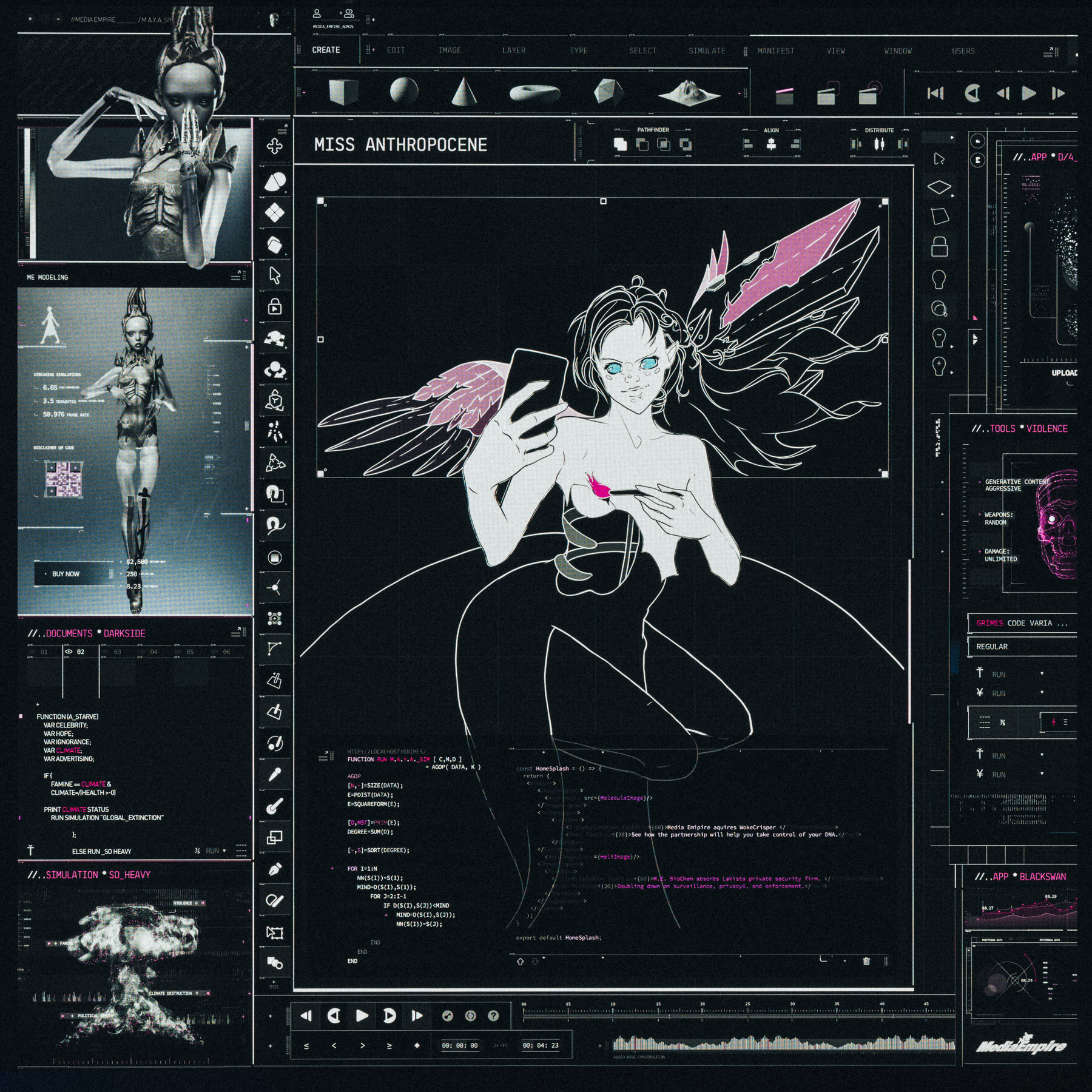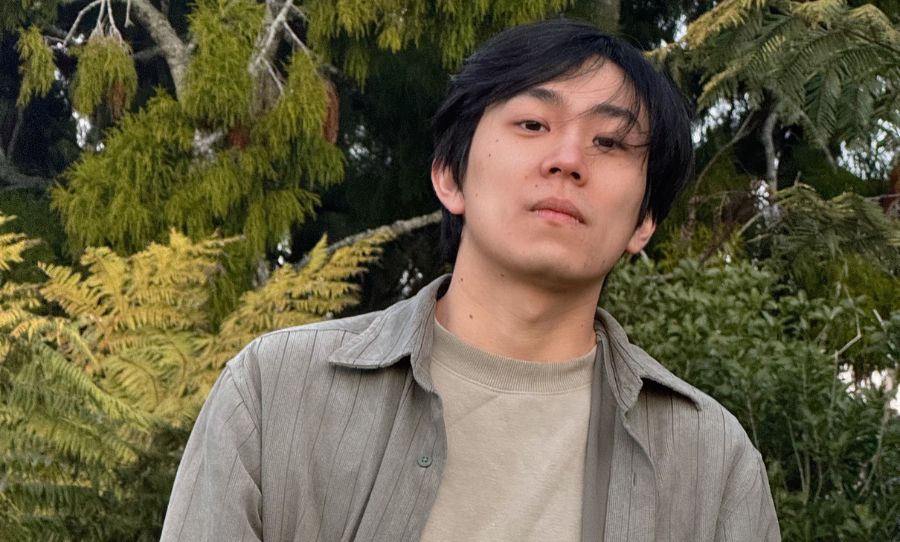On her fifth album, Grimes ascends to goddess-like heights, casting herself as omnipresent creator. Drawing inspiration from nu-metal and ethereal wave, Grimes harnesses the full powers of production to create something timeless.
A stunning concept album, Miss Anthropocene traces otherworldly terrain, a post-apocalyptic landscape, which in the end is just as much internal as it is external.

Like a strange enchantress, Grimes plays creator on her new album, Miss Anthropocene, and it’s a gripping study of chaos, both of the world and of the self.
Grimes infamously called her 2015 LP Art Angels a stain on her life, disillusioned by how to record was received. Critics framed it as a pop record, a label the singer found painfully reductive. Yet, nevertheless, Art Angels saw a departure from the enigmatic DIY production that made its predecessor, Visions, so unique – trading darkness for something which was lighter in substance.
It’s taken five years for Grimes to follow up on Art Angels. It’s well worth the wait. On Miss Anthropocene, it feels as though Grimes has come into her own. In many ways, the album is the perfect storm between its two predecessors, reverting to the darkness of Visions, whilst elevating the production to a whole new level.
The album begins with a restless, ominous stirring which marks the beginning of So Heavy I Fell Through the Earth. Over shifting, ambient synths and guitars, Grimes’ vocals float in immense reverb. It’s a cavernous space, industrial, otherworldly. Yet, full of direction. This was the second single released ahead of the album. At the five minute mark, the track evolves into what feels like a moment of hope, soft synths ring out over Grimes’ vocal sighs.
If the final moments of So Heavy I Fell Through the Earth inspired any hope, Darkseid immediately destroys that. Grimes declares in confident, spoken word: “Unrest is in the soul, we don’t move our bodies anymore”, her voice repeating in ubiquitous echoes, whilst guest vocals from 潘PAN are urgent in contrast. Darkseid fully illuminates the post-apocalyptic landscape that Grimes has created. It’s a world which is made even more expansive by its abstractness. Without visuals, our minds are forced to fill in the blanks.
Grimes has described Miss Anthropocene as a concept album. Its title is a play on the word misanthrope – a person who dislikes humankind – and Anthropocene, which refers to our current geological age. The album focuses on a single entity: an “anthropomorphic goddess of climate change”. Inspired by Roman gods, Grimes describes that by personifying climate change, she wanted to make the concept one which was easier to face, not just “abstract doom”.
Moments of pure power are abundant. Violence was originally intended for Grimes’ sixth album – a “techno-pop album” – which she is already reportedly working on. Yet, in the end, the singer decided to include the track on Miss Anthropocene. 4ÆM is equal parts insane and confident, venturing into new territory with Eastern-inspired melodies. In the chorus, her vocals are almost obscured in a mass of vocal effects – we are a far cry from the crystalline production of Art Angels.
In many ways, Miss Anthropocene is the act of Grimes facing her inner-demons. The singer has described how her negative portrayal in the media, following the emergence of her relationship with Elon Musk, led her to feel villainised. Now, on Miss Anthropocene, Grimes embraces the role of villain. In reality, it’s an album about inner-catastrophe, just as much as it’s about the external.
And in some moments, she completely embraces that identity. On fourth single, My Name Is Dark – originally titled That’s What The Drugs Are For – Grimes submits herself to the hedonism of cataclysm: “So we party when the sun goes low / Imminent annihilation sounds so dope.” It’s the end of the world – if it was a party.
Yet, Grimes also manages to weave in a softness. Delete Forever, released only last week, magnificently disrupts the palette of the rest of the album. A much more organic sounding, and mostly guitar-driven track, it faces the end of the world with a different perspective.
If the rest of the album is set in the apocalyptic future, the expansive sixth track, New Gods, looks even further forward. “Hands reaching out for new gods / You can’t give me what I want,” muses Grimes, wondering what god looks like in our futuristic, post-truth era.
Yet despite all the doom, IDORU ends the album on a note of hope. The song is the only one to really recall the more sugary textures of Art Angels, and there is a dreamlike, idealism contained within its walls. “We could play a beautiful game,” Grimes laments in the chorus, “I want to play a beautiful game.” Even at the edge of annihilation, there’s a longing for something more.
Miss Anthropocene is out on the 19th of February, via 4AD. Grab your copy here.




